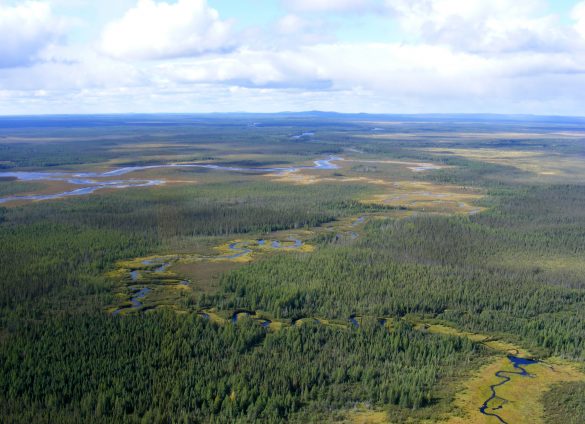The government of Quebec provides direct health assistance to its population through an extensive programme of research undertaken in collaboration with many ministries and organizations.
Quebec is Canada’s largest province by area and its second-largest administrative division and population. French is the sole official provincial language. Quebec experiences severe cold winters and warm humid summers. Quebec has been committed to tackling climate change for over a decade. The 2012 goal of 6% emission reduction was surpassed when Quebec reduced its emissions 8% on 1990 by 2012. Subsequent goals of 20% reduction on 1990 levels by 2020, 37.5% by 2030 and 80-95% by 2050 have been set. The Quebec Government has been working to respond to the health impacts of climate change for 20 years and has established a comprehensive programme to ensure that direct health assistance is provided to the population in extreme events. In fact, Quebec reports online more than five times as many health adaptation initiatives as the next province or territory, has a comprehensive adaptation plan and addresses almost all health risks that have been identified in the province.
As part of the first federal programme to support adaptation, in 1998 a health project was set up in Arctic Quebec, where temperature rises could reach 4 degrees by 2050, to understand more about the impacts. Subsequently, the Ouranos consortium was established in 2001, to help better understand the impacts of climate change and the political and social responses required to address these. The knowledge that has been obtained through Ouranos has enabled the development and implementation of subsequent climate action plans.
By 2003, a multi-disciplinary research programme was approved which was designed to carry out an assessment to see how adequate the public health adaptations were in Quebec to respond to climate change. In 2006, the focus was expanded to include the issues of hospital morbidity, air pollution, waterborne gastroenteritis and the activities of knowledge transfer and mapping.
In 2007, the Health Minister named the National Institute of Public Health of Quebec (INSPQ) as the responsible entity for the health component of the Climate Change Action Plan (PACC) in the province, with a specific focus on completing particular activities by 2013, including:
- Developing and implementing an integrated and real time monitoring and warning system for the health impact of heatwaves for all regions in Quebec likely to be affected.
- Propose infectious disease surveillance systems to enable timely detection of selected pathogens, vectors or diseases; to identify regions or areas at risk; to analyse the distribution of climate sensitive infectious diseases.
- Develop a system to monitor the health impacts of extreme weather events in Quebec
- Develop and update guidance for healthcare facilities and for clinical, social and public health professionals on preventative adaptation measures.
- Establish a training programme on the physical and psychosocial health impacts of climate change, their treatment and appropriate preventive measures for health personnel, civil protection and other relevant sectors.
- Disseminate and transfer knowledge of all programmes.
The most recent PACC, 2013-2020 continues the research that was already established and further priorities additional areas of focus, these include initiatives to improve air quality, the prevention of the impact of heatwaves and the prevention and elimination of heat islands. Ongoing research projects are assessing 1) the impacts of green spaces on social inequalities and mental health in a climate change context and, 2) ways to satisfy the psychosocial needs of individuals and communities impacted by climate change risks in a rural environment in Quebec.
The My Climate, My Health website has been set up to enable citizens to learn more about the many health impacts of climate change, The page Personal vulnerability factors identifies the particular vulnerabilities for different socio-economic groups in Quebec, such as the elderly, children, the socially and economically disadvantaged, etc.
The comprehensive nature of the provisions Quebec is making around public health and climate highlights a level of sophistication in Quebec’s approach to adaptation not seen on a similar scale elsewhere. These activities have been made possible through dedicated funding, strong interdisciplinarity and openness to innovate within the public health sector. Whilst initial budgets for the research were set around 500,000 CAD annually, when all of the tools and resources became available, the dedicated resources set aside for the project were more in the region of 5 million CAD annually.
There is a lot to learn from Quebec’s efforts in this area. Dedicated research budgets enable competent teams to be assembled to focus dedicated time on considering the complex impacts of climate change on public health. These teams have uncovered that dealing with adaptation doesn’t require a lot of innovation, but rather governance arrangements need to be aligned – to enable more co-and cross-working between health and governmental authorities.





